Question And Answer
Publications
Articles, publications, books, tools and multimedia features from the U.S. Institute of Peace provide the latest news, analysis, research findings, practitioner guides and reports, all related to the conflict zones and issues that are at the center of the Institute’s work to prevent and reduce violent conflict.
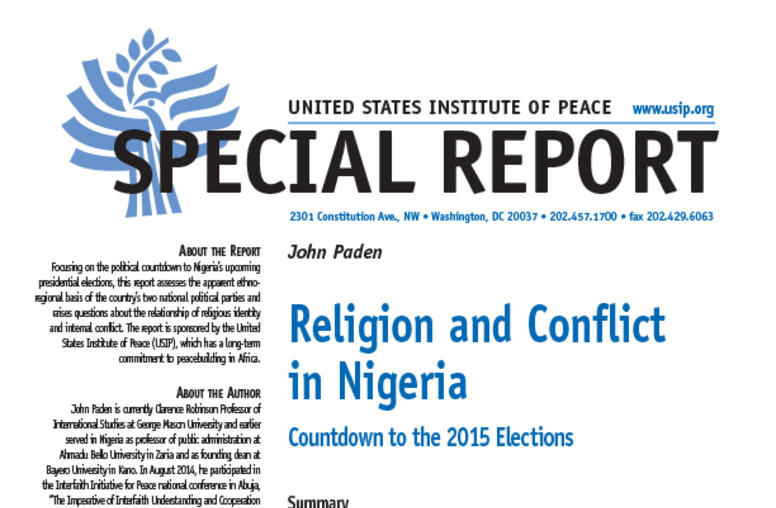
Religion and Conflict in Nigeria
Nigeria—its vast population evenly split between Muslim and Christian—is counting down to another presidential election, scheduled for February 2015. This report raises a number of questions about the relationship of religious identity and internal conflict and the consequences of a polarized election. Do religious symbols exacerbate or mitigate conflict, especially during an electoral season? What are the interfaith efforts to ameliorate or mitigate ethno-religious conflict? What are the con...
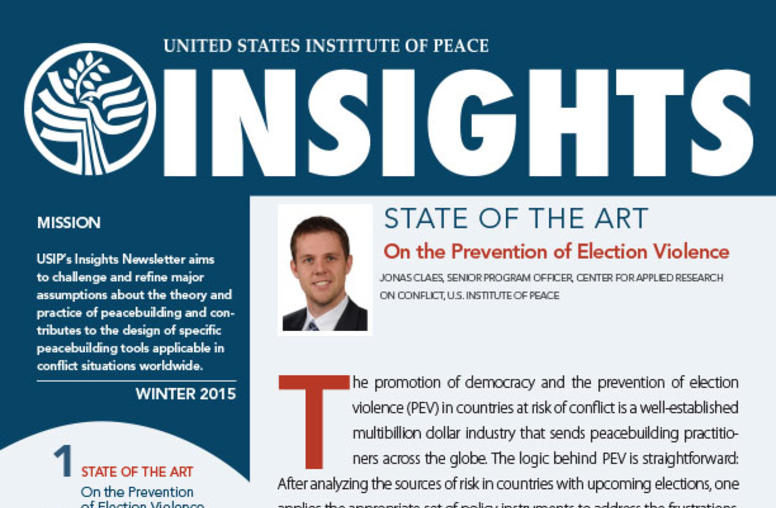
Winter 2015 Insights Newsletter – Preventing Election Violence
Insights highlights major questions on the research and practice of peace and conflict, to more than 10,000 subscribers from around the world.
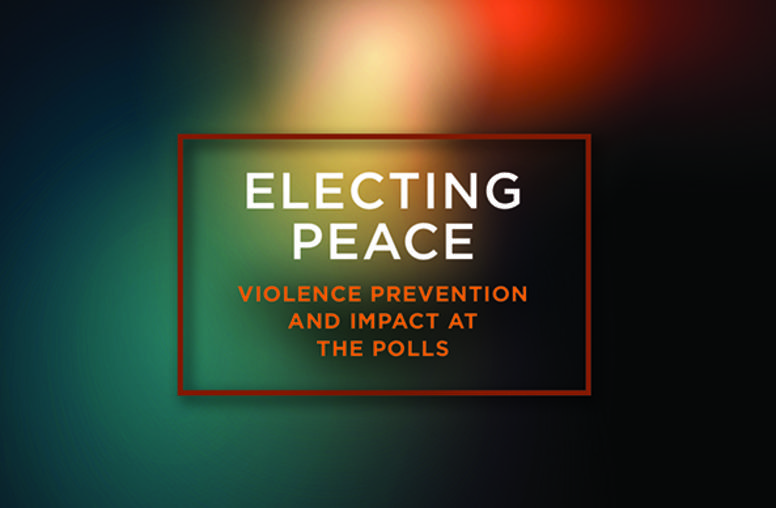
Electing Peace
Electing Peace: Violence Prevention and Impact at the Polls examines election violence prevention and assesses the effectiveness of different prevention practices—which are effective, which are not, and under what circumstances.
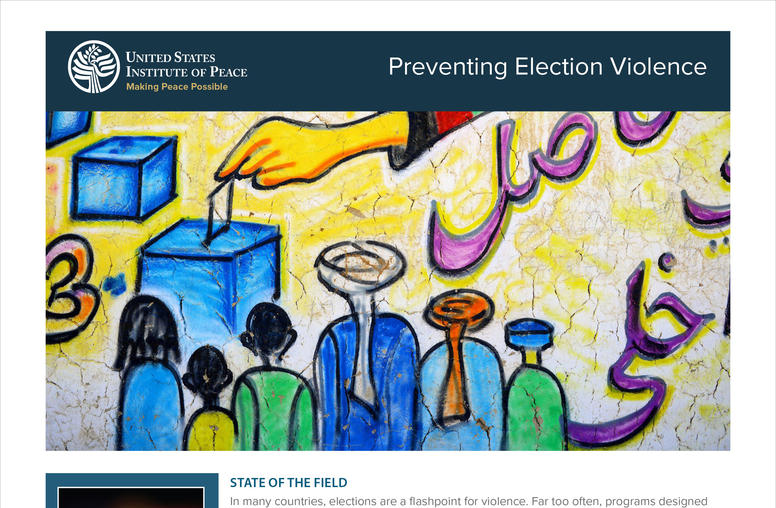
Preventing Election Violence
In many countries, elections are a flashpoint for violence. Far too often, programs designed to prevent election violence are based on intuition instead of evidence, or efforts concentrate solely on logistical or technical support on election day. When prevention efforts fail and violence erupts, officials may respond with a counter-productive crackdown, citizens lose trust in the ability of government and the rule of law to protect them, and years of development efforts are reversed.
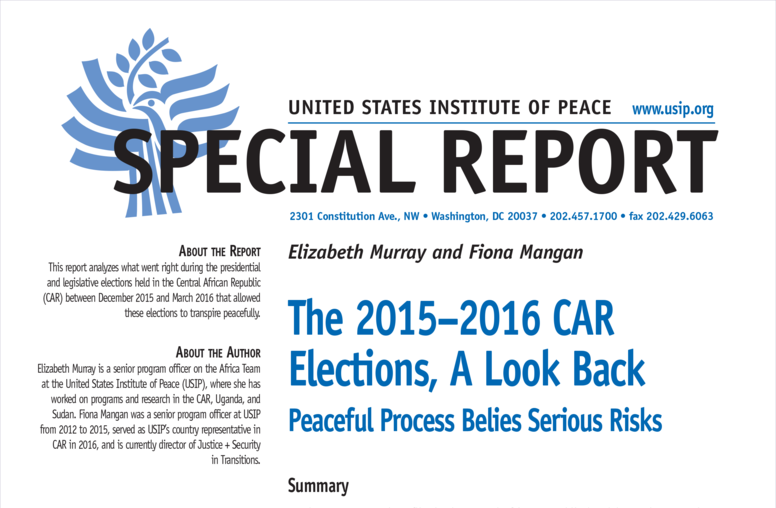
The 2015–2016 Central African Republic Elections, A Look Back
Plagued by successive coups and waves of violent conflict since its independence in 1960, the Central African Republic managed to hold its first peaceful elections in late 2015 and early 2016. Fears of widespread violence proved unfounded. This report focuses on what went right in those elections and how those conditions have not held a year later, allowing violence to return to the country.
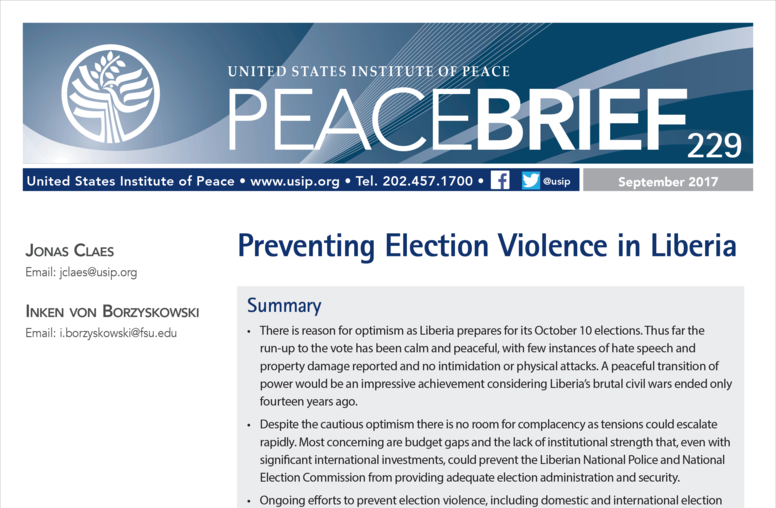
Preventing Election Violence in Liberia
Liberia will hold presidential and legislative elections on October 10. The run-up to the vote has been primarily peaceful, and the country has engaged in ongoing efforts to prevent election violence. This Peace Brief, based on USIP research, assesses the risk of election violence and the scope of violence prevention efforts, and provides recommendations for ongoing prevention.
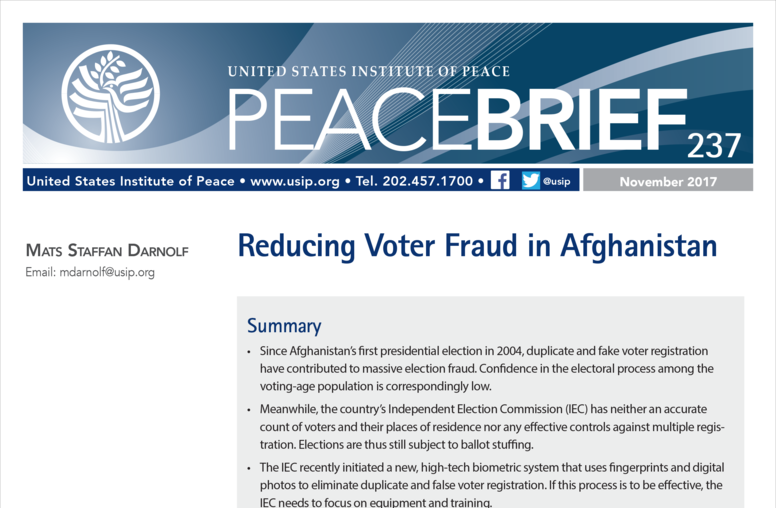
Reducing Voter Fraud in Afghanistan
Since Afghanistan’s first presidential election in 2004, massive election fraud and malpractices have been the rule. Confidence in the electoral process among the population is correspondingly low. As this Peace Brief explains, a new biometric voter registration system has...

Scott Worden on the Taliban in Afghanistan
Following the horrendous bombing outside a Kabul voter registration center, Scott Worden shares his sobering analysis and commentary about the continuing war in Afghanistan where he says most agree that a military victory is unlikely. The conflicts grinding stalemate, Fall 2018 elections and presidential elections due a year from now concern Worden especially with today’s Taliban announcement of a new fighting season and rejection of President Ghani’s peace offering.

Understanding Pakistan’s Election Results
Days after Pakistan’s February 8 general election, the Election Commission of Pakistan released the official results confirming a major political upset. Contrary to what most political pundits and observers had predicted, independents aligned with former Prime Minister Imran Khan’s Pakistan Tehreek-e-Insaf (PTI) won the most seats at the national level, followed by former Prime Minister Nawaz Sharif’s Pakistan Muslim League-Nawaz (PML-N), the Pakistan Peoples Party (PPP) and the Muttahida Qaumi Movement (MQM). No party won an absolute majority needed to form a government on its own. The resultant uncertainty means the United States may have to contend with a government that is more focused on navigating internal politics and less so on addressing strategic challenges.
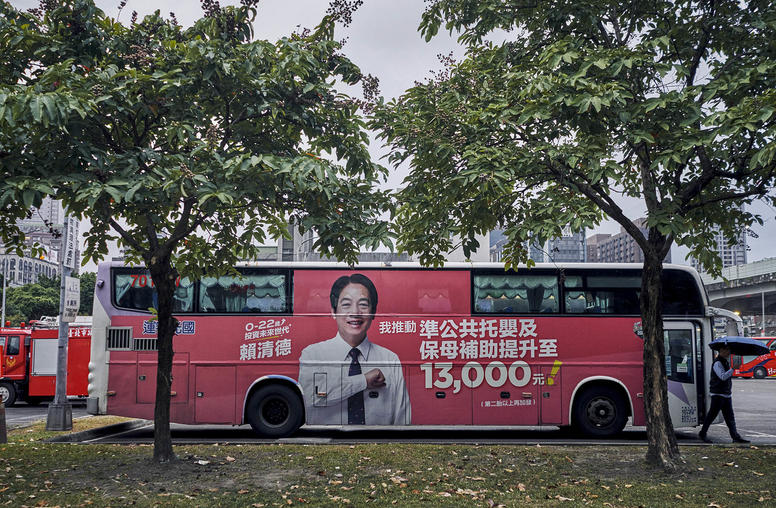
Disinformation Casts a Shadow Over Global Elections
This year will be one of the most consequential in recent memory, as more than 50 elections will take place in countries across the world covering nearly 2 billion people. With the role of technology increasing in a multitude of sectors, communications technology (i.e., social media platforms and messaging apps) and artificial intelligence (AI) are poised to have varying levels of impact on the elections in 2024. Without strong collaboration and planning between peacebuilders, civil society, technology companies and governments, the fallout from unmanaged technology use around the elections will be far reaching, from an increasing inability to discern fact from fiction to distrust in democratic political processes.